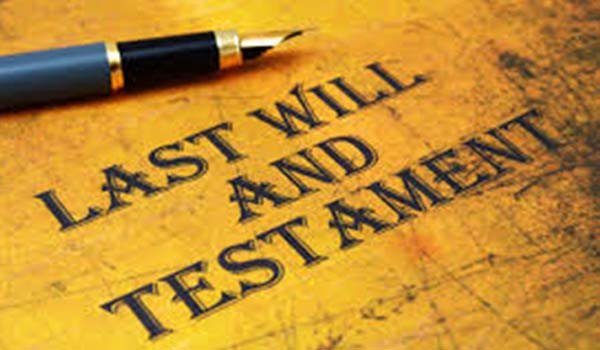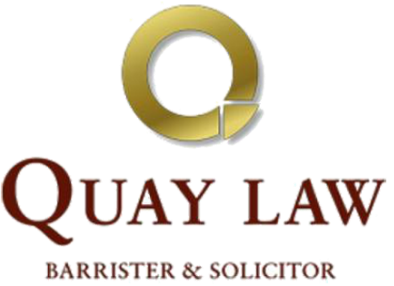Why you should get around to making your Will?
Do you have a Will? It’s one of the most important documents you could ever have. In this article, Auckland lawyer Ian Mellett explains why it’s important to have a Will and how to go about making one.

While most people know they should have a Will, many don’t – go on, ask around your friends and colleagues and see for yourself how many don’t have a up-to-date Will. Perhaps that’s because not too many people know what is a Will, or how it works.
In the long run, however, having a valid Will is something that will save your family time, money and grief – and give you peace of mind. So, we’ve put together this article to help answer the question: What is a Will?
What is a Will?
A Will, sometimes also called a “Last Will and Testament,” is a legal document that clearly sets out your final wishes for the distribution of your assets after your death. To be legally valid, and avoid problems when the time comes, it’s important that your Will be created properly. So, make sure your Will is:
- In writing.
- Witnessed by two people who are not beneficiaries of your Will.
- Signed by you and the witnesses in one another’s presence – in other words, you all need to watch one another sign the document. Even go so far as to use the same pen, as this helps confirm the fact the will was signed and witnessed when all three people were together.
Your Remuera lawyer at Auckland law firm Quay Law will work with you to ensure you’ve got everything covered to ensure your Will is legally valid.
Why do I need a Will?
Having a clear, legally valid and up-to-date Will is the best way to help ensure that your assets are protected and distributed according to your wishes. In fact, if you want your wishes to be faithfully carried out after your death, then having a valid Will is the only way to ensure this. This is, after all, the whole reason for writing up a Will.
What if I don’t have a Will?
If you die without a Will, also known as dying ‘intestate’, no-one will know what you want to happen with your possessions and assets. In other words, they won’t know who you want to inherit your property, how you want any dependents, including minor children, to be looked after, or who you want to be the executor of your estate (I.e. the person or people you want to manage the distribution of your belongings).
Since there is no Will when you die intestate, the intestacy laws of the place where you lived will determine what happens to your property, distributing your assets according to a set formula with certain relatives receiving a defined percentage of your assets, irrespective of what you really may have wanted.
If you have a written, valid Will on the other hand, then it’s far more likely that what you want to happen with your assets after your death will actually happen – and in the way you want it to happen.
Which of the two situations outlined above would you prefer?
What should my Will cover?
Here are some of the instructions you should include in your Will:
- The name of the executor of your Will.
- Whether you want to be buried or cremated – although it’s important to also talk to family and friends about this beforehand as they may only see your Will after the funeral.
- The name of the person or people you’ve appointed as the guardians of any minor children.
- Instructions on how you want your money, possessions and other assets to be distributed to your beneficiaries – your partner, children, other family members, friends and so on.
If you’ve previously made a Will, each subsequent Will should also clearly state that it revokes any other previous Wills. Talk to your Auckland solicitor at Quay Law to ensure your Will covers off everything that you need it to.
When should I write up my Will?
It is not necessary to wait until some of other major event in your life, such as a marriage, the birth of children, the purchase of property or the news that you need to have major surgery or are in poor health to make a start at getting your Will sorted. That could be leaving it way too late.
You can write up your Will at any time – in fact, you should do so as soon as you start living independently and earning a living, or when you turn 18. (Parents, giving the gift of a Will to your child on a significant birthday is a great way to get them in the habit of constantly keeping their affairs in order.)
Of course, when big changes do happen in your personal or family circumstances, it’s a very good idea to make sure your Will is still current and reflective of your latest circumstances.
Who should I use to help me write up my will?
Your Will is one of the most important documents you will ever sign, so it’s advisable that you have it prepared and updated with the help of an expert in such matters. Your Auckland lawyers at Auckland law firm Quay Law are skilled in handling a wide range of legal matters, including the writing of Wills and other estate planning and are ready to help you write a Will that’s perfect for you and your unique circumstances, no matter how straightforward or complicated your estate might be.
It’s also a good idea to set up enduring power of attorney (EPA) at the same time you make your Will. See our information on enduring power of attorney for more about an EPA.
What will it cost to write up my Will?
There’s really no fixed price for writing up a Will. Your Auckland lawyers will charge you for the time that they spend advising you and writing up your Will, but if it’s a very basic Will, they may charge you a set fee. The amount of time it takes depends on the complexity of the assets and relationships the Will is being designed to cover.
There’s no time like the present
If you are serious about wanting to make sure your family is well-looked after according to your wishes when you’re no longer with them, then it’s important to ensure you have a valid and up-to-date Will.
So, if you haven’t yet got a Will, or you have a Will but it’s out of date, then don’t delay one day longer. Get in touch with your Auckland solicitors at Quay Law straightaway.
Recent News
Our legal tips are provided by the Remuera, Auckland property lawyers and conveyancing specialists at Quay Law (New Zealand). These articles cover a range of legal topics and news worthy articles.
Some common forms of property ownership in New Zealand are included below.
Our Auckland lawyers are able to provide you with a conveyancing fee quote and have assist many families with their loan | refinancing requirements.

